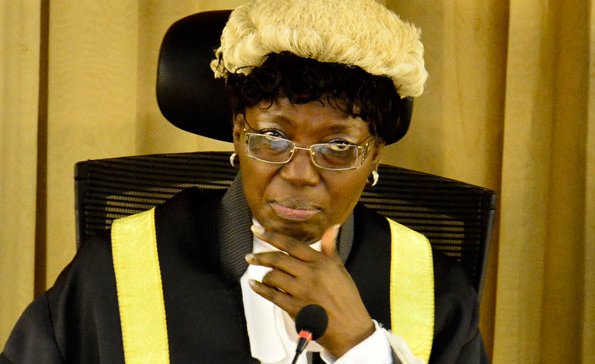A bill to address regional imbalances in the recruitment, appointment and promotion of persons in public offices has been tabled before Parliament.
The Constitution (Amendment)(No.2) Bill,2020 moved by Jinja Municipality MP Hon. Paul Mwiru also seeks to establish Elections Petition Tribunals. The bill presented on Wednesday, 29 July 2020, was referred to the Legal and Parliamentary Affairs Committee by Speaker Rebecca Kadaga.
The Amendment Bill presented by Mwiru, seeks to insert a new article (32A) in chapter four of the Constitution. Chapter 4 of the Constitution is premised on protection and promotion of fundamental and pother human rights and freedoms.
The proposed new article 32(A) in its first clause proposes that, “The State shall put in place affirmative action to promote equitable distribution of employment opportunities for any office established by the Constitution, by an Act of Parliament or within the public service based on the regions in Uganda”.
The article also proposes that “The Equal Opportunities Commission shall submit annual reports to Parliament on the progress made by the State for the purpose of giving effect to clause (1)”.
The Election Petition Tribunals, according to the Bill, will determine elections petitions arising out of parliamentary elections, whether a seat of a Member of Parliament has become vacant, and whether a person has been validly elected Speaker or Deputy Speaker or having been so elected, vacated that office.
“The decision of the Election Petition Tribunal shall be final and not subject to any appeal,” reads the Bill in part.
An Election Petition Tribunal shall serve for a term not exceeding two years and will be appointed by the Chief Justice, in consultation with the Deputy Chief Justice and the Principal Judge, by notice in the Gazette.
While tabling the Bill before Parliament for its first reading, Mwiru said that it had been presented without a certificate of financial implication.
“I beg to lay on table, the letter from the Secretary to the Treasury to the Clerk to Parliament, refusing to grant the certificate of financial implication in respect of the Bill,” Mwiru said.
He referred the House to a ruling by Deputy Speaker on 03 and 10 December 2019 where he said a letter by the Finance Minister declining to issue a certificate of financial implication was not in line with section 76 of the Public Finance Management Act that requires the minister to issue it.
“This Bill is moved under Section 76 (4) where if the Minister of Finance refuses to issue a certificate of financial implication within 60 days from the date of the request, it is presumed that the Bill has no financial implication,” Mwiru added.
Kadaga said she was satisfied that the Finance Minister had not issued a certificate of financial implication for the Bill and that the House would proceed to consider it according to the law.
“The Secretary to the treasury cannot assume the powers of the Minister to write to the Clerk to say they are not issuing the certificate. Even so, it should be done on the grounds stated in the Public Finance Management Act,” said Kadaga.


